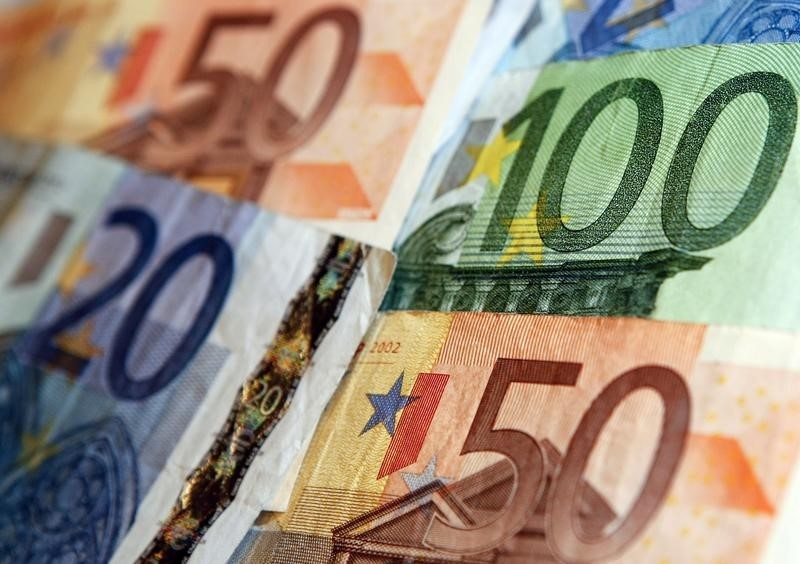By Dhara Ranasinghe and Alastair Sharp
LONDON/TORONTO (Reuters) - The euro slipped towards seven-month lows, bond yields fell and European shares rallied on Thursday on growing talk of aggressive stimulus from the European Central Bank next week.
The pan-European FTSEurofirst 300 index (FTEU3) settled 0.9 percent higher, adding to Wednesday's 1.4 percent gain, while the Euro STOXX 50 index (STOXX50E) added 1.1 percent.
Canada's main stock index (GSPTSE) rose 0.25 percent, led by gains for its heavyweight financial sector and some of its biggest miners. [.TO] Wall Street was closed for Thanksgiving, a day after shares closed flat in a pre-holiday lull.
Overnight, Asian stocks closed modestly higher. MSCI's broadest index of Asia-Pacific shares outside Japan (MIAPJ0000PUS) rose 0.2 percent.
"Expectations surrounding the ECB are running very high and this is driving European markets higher, weakening the euro and helping them do better than U.S. stocks," said Marco Vailati, head of research and investment at Italy's Cassa Lombarda.
"I think and hope the ECB will not disappoint but I realize that it won't be that easy," he said.
Euro zone central bank officials are considering options such as staggered charges on banks hoarding cash and buying more debt ahead of next week's ECB meeting, Reuters reported on Wednesday.
That fueled talk that the central bank is preparing aggressive measures to lift inflation and economic growth in the 19-member euro zone.
HOW LOW FOR EURO?
This view kept the euro under pressure, and it dipped to $1.0605
Market activity was thin due to the U.S. holiday, with the greenback trading in a tight range.
"Ultimately, I think the ECB will be aggressive and that divergence in policy with the United States must imply a weaker euro," said Chris Scicluna, head of economic research at Daiwa Capital Markets in London.
"The question now is how far can we go, and as the Fed tightens, euro/dollar parity is looking likely by the second quarter of next year."
Euro zone lending expanded in October at its fastest rate in nearly four years, while a broader measure of money circulating grew well ahead of expectations, ECB data showed.
Still, banks continue to park around 160 billion euros in overnight deposits with the ECB, as negative rates and extraordinary stimulus have yet to unblock lending channels.
Short-term euro zone interest rates fell to record lows as markets braced for an aggressive cut due to an ECB debate about two-tier deposit rates.
German five-year government bond yields
U.S. economic data on Wednesday cemented expectations that U.S. interest rates will rise soon, helping push the gap between short-dated bond yields in the U.S. and Germany to their widest since 2006 and underpinning the dollar.
OIL LOWER, COPPER REBOUNDS
Oil prices fell after six days of gains, as investors grew less worried that violence in the Middle East would disrupt supply, and returned their focus to the global supply glut. [O/R]
Brent (LCOc1) crude oil futures fell 1.2 percent to $45.62 a barrel.
Spot gold
Copper prices
Turkish assets remained under pressure as Russia threatened economic retaliation over its downed jet, but other emerging equities edged up, snapping a three-day losing streak.

Emerging stocks (MSCIEF) were last up 0.16 percent.